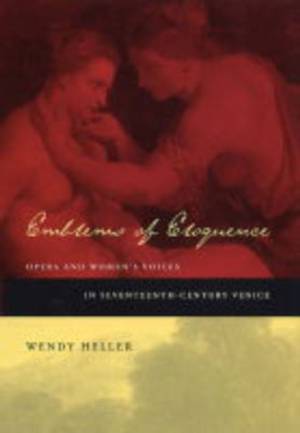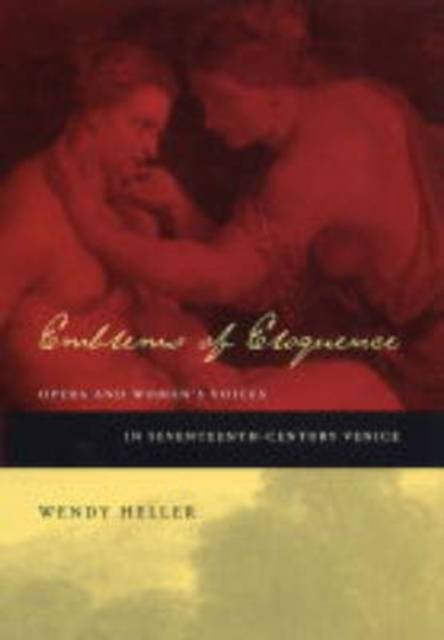
- Afhalen na 1 uur in een winkel met voorraad
- Gratis thuislevering in België vanaf € 30
- Ruim aanbod met 7 miljoen producten
- Afhalen na 1 uur in een winkel met voorraad
- Gratis thuislevering in België vanaf € 30
- Ruim aanbod met 7 miljoen producten
Zoeken
Omschrijving
Opera developed during a time when the position of women-their rights and freedoms, their virtues and vices, and even the most basic substance of their sexuality-was constantly debated. Many of these controversies manifested themselves in the representation of the historical and mythological women whose voices were heard on the Venetian operatic stage. Drawing upon a complex web of early modern sources and ancient texts, this engaging study is the first comprehensive treatment of women, gender, and sexuality in seventeenth-century opera. Wendy Heller explores the operatic manifestations of female chastity, power, transvestism, androgyny, and desire, showing how the emerging genre was shaped by and infused with the Republic's taste for the erotic and its ambivalent attitudes toward women and sexuality.
Heller begins by examining contemporary Venetian writings about gender and sexuality that influenced the development of female vocality in opera. The Venetian reception and transformation of ancient texts-by Ovid, Virgil, Tacitus, and Diodorus Siculus-form the background for her penetrating analyses of the musical and dramatic representation of five extraordinary women as presented in operas by Claudio Monteverdi, Francesco Cavalli, and their successors in Venice: Dido, queen of Carthage (Cavalli); Octavia, wife of Nero (Monteverdi); the nymph Callisto (Cavalli); Queen Semiramis of Assyria (Pietro Andrea Ziani); and Messalina, wife of Claudius (Carlo Pallavicino).
Heller begins by examining contemporary Venetian writings about gender and sexuality that influenced the development of female vocality in opera. The Venetian reception and transformation of ancient texts-by Ovid, Virgil, Tacitus, and Diodorus Siculus-form the background for her penetrating analyses of the musical and dramatic representation of five extraordinary women as presented in operas by Claudio Monteverdi, Francesco Cavalli, and their successors in Venice: Dido, queen of Carthage (Cavalli); Octavia, wife of Nero (Monteverdi); the nymph Callisto (Cavalli); Queen Semiramis of Assyria (Pietro Andrea Ziani); and Messalina, wife of Claudius (Carlo Pallavicino).
Specificaties
Betrokkenen
- Auteur(s):
- Uitgeverij:
Inhoud
- Aantal bladzijden:
- 405
- Taal:
- Engels
Eigenschappen
- Productcode (EAN):
- 9780520209336
- Verschijningsdatum:
- 12/01/2004
- Uitvoering:
- Hardcover
- Formaat:
- Genaaid
- Afmetingen:
- 165 mm x 242 mm
- Gewicht:
- 771 g

Alleen bij Standaard Boekhandel
+ 288 punten op je klantenkaart van Standaard Boekhandel
Beoordelingen
We publiceren alleen reviews die voldoen aan de voorwaarden voor reviews. Bekijk onze voorwaarden voor reviews.











